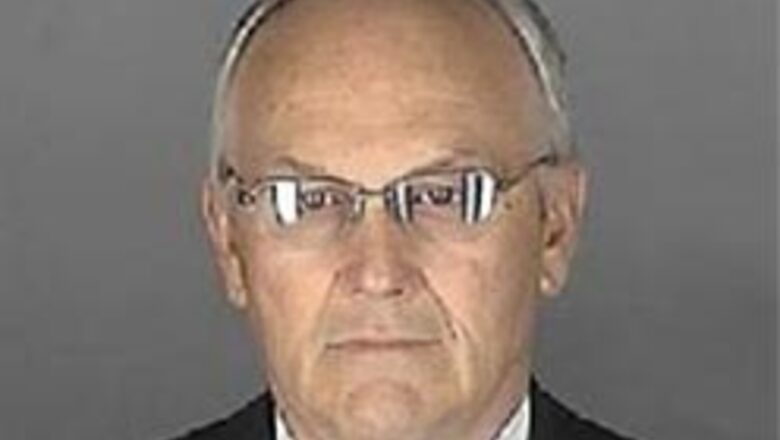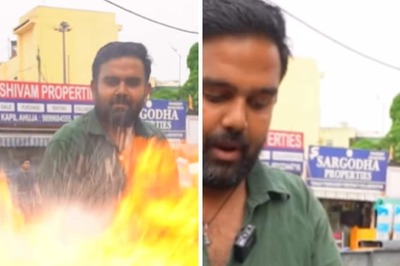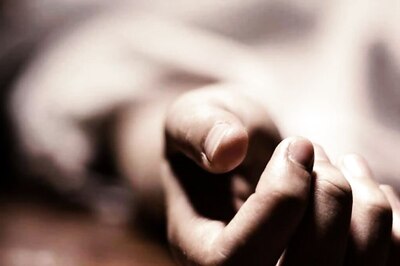
views
New York: Sen Larry Craig's ``I'm not gay'' declaration met with disdain Wednesday from gay activists, many of whom knew for nearly a year - long before his recent arrest - of allegations that the conservative Idaho Republican solicited sex from men in public bathrooms.
They view his case as a prime example of hypocrisy - a man who furtively engaged in same-sex liaisons while consistently opposing gay-rights measures as a politician.
"He may very well not think of himself as being gay, and these are just urges that he has,'' said Matt Foreman, executive director of the National Gay and Lesbian Task Force. ``It's the tragedy of homophobia. People create these walls that separate themselves from who they really are.''
In Washington, some of Craig's fellow Republican congressmen began calling for his resignation, as did the Log Cabin Republicans, the largest gay GOP group. The White House expressed disappointment in the case while avoiding a statement of support for Craig.
Craig proclaimed his innocence, and his heterosexuality, on Tuesday after revelations that he pleaded guilty to disorderly conduct following his arrest in June at a Minneapolis airport men's room where an undercover officer suspected him of soliciting sex.
But detailed accusations against Craig had been available since last year through an Internet-based activist who had a hand in outing several Republican politicians, including former Rep. Mark Foley, the focus of a House page scandal, and former Rep. Edward Schrock, linked to a gay dating site.
The activist, Mike Rogers, went public last October with allegations that Craig engaged in sexual encounters with at least three men, including one who said he had sex with Craig twice at Washington's Union Station.
PAGE_BREAK
The Idaho Statesman published a lengthy story Tuesday, a day after the June 11 arrest was first reported, detailing Rogers' allegations, which Craig has denied.
The newspaper went even further back into Craig's life, talking to other men who claimed they were solicited by him. It also mentioned a congressional scandal in 1982, in which a male page reported having sex with three congressmen, and Craig - although not named by the youth - issued a statement denying any wrongdoing.
The cumulative weight of the allegations served to convince many conservatives - as well as gay activists - that Craig was being untruthful.
"I ask Senator Craig to help us all by doing the right thing: Fess up to God and man, step aside and seek help,'' said the Rev. Rob Schenck, president of a conservative religious group, Faith and Action. Democratic Rep. Barney Frank of Massachusetts, one of two openly gay members of Congress, chided Craig for hypocrisy but said there was no need for him to resign now.
"It's not an abuse of his office in the sense that he was taking money for corrupt votes,'' said Frank, D-Mass. ``I think people should resign when they have clearly done the job in a way that is dishonest.''
Rogers noted that some politicians, when confronted with evidence about same-sex encounters, have acknowledged their homosexuality - such as Frank and the late Rep. Gerry Studds, D-Mass. Others persist in denial, and Rogers contends they are fair game for exposure if they vote against gay-rights causes.
"I'd love for Larry Craig to come out and be honest with the people of Idaho and run as a Senate candidate and see if the Republican Party is the big tent they claim to be,'' Rogers said. However, he predicted that the Idaho GOP would be eager to get Craig - who is up for re-election in 2008 - out of politics.
Foreman said Craig contributed to his own problems by living in denial.
"For most people living in the closet, and particularly for people in power, they dig themselves in so deeply they can't see a way out,'' he said. ``When they are found out, their life does come crashing down around them - not because they were gay, because of the way they covered it up.''
However, Foreman did express some empathy with Craig in regard to the reaction of his GOP Senate colleagues. They have called for an ethics committee review of his case, which they did not do in response to revelations that Sen. David Vitter, R-La., was on the contact list of a Washington-area escort service.
"The double standard is shocking,'' Foreman said. ``We'll throw the closet queer under the bus, but if you see a female prostitute, that's just fine.''
The Craig case also raised questions about the phenomenon of male sex in public restrooms - how prevalent is it, and who participates?
The issue has been a source of controversy this summer in Fort Lauderdale, Fla., where Mayor Jim Naugle has drawn fire from gay-rights groups for suggesting that such bathroom sex is a significant problem and briefly proposing installation of automated, single-user toilets.
After reports of Craig's arrest, police officials around the country gave widely varying accounts of whether public bathroom sex was a serious problem in their areas.
"My sense is that most of the people who engage in bathroom sex are living closeted lives,'' Foreman said. ``If you're open, you can hook up on line, in a bar or even through your church.''
William Leap, an anthropology professor at American University, said his research indicated that up to half of those who engage in male bathroom sex would consider themselves heterosexual.
"You've got several groups of folks,'' he said. ``Happily married men with children who enjoy having sex with men every so often, and also self-identified gay men who enjoy the thrill of anonymous sex.''
He suggested that almost every sizable community nationwide has one or more places where men seek out sex with other men. Whether that location becomes notorious, and the setting for arrests, Leap said, depends largely on whether the men using it create a disturbance that bothers others.




















Comments
0 comment